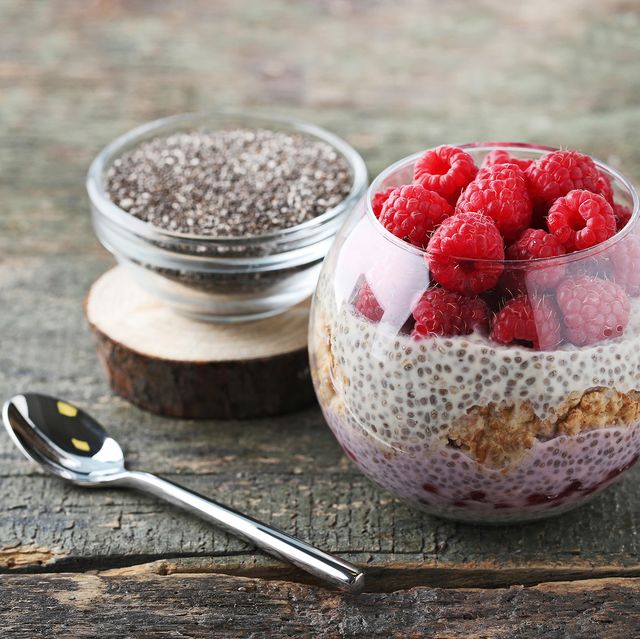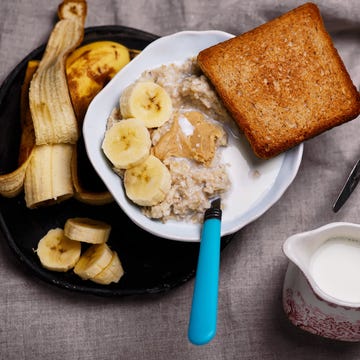Despite their tiny size, chia seeds pack a powerful punch. So, if you’re looking for a food with an outstanding macronutrient and micronutrient profile that can improve your health and support your running performance, be sure to add these nutrient-dense seeds to the top of your shopping list.
Chia seeds come from the Salvia Hispanica plant and, although they have been a mainstream superfood for several years, these little morsels have actually been around for centuries. Early historical documentation links the functional food back to the Aztecs and Mayans, who used chia both for its nutritional and medicinal benefits. Chia actually means ‘strength’ in the Mayan language and the ancient Aztecs ate the seeds to increase their power and endurance.
The Tarahumara ultrarunners – an Indigenous group from Mexico’s Chihuahua state known for their ability to run long distances at one time often in barefoot or homemade sandals – take their chia seeds very seriously indeed. In his best-selling book about The Tarahumara, Born to Run, Christopher McDougall learns about how chia seeds play an important part in the Native American tribe’s diet, including in Iskiate (IS-kee-ah-tay), a a water-based chia drink consumed to help fuel endurance.
What everyone's reading
Two tablespoons of chia seeds weigh in at under 140 calories and offer almost 5g of protein, more than 8g of fat and almost a third of your daily recommended intake (30g) of fibre – which isn’t bad going at all. Here, we’ve shared some more reasons why you should add chia seeds to your healthy runner’s diet.
How can chia seeds benefit runners?
They are packed with anti-inflammatory properties
The antioxidants in chia seeds – in particular, the phenolic compound caffeic acid – are thought to help combat the inflammation that naturally occurs when muscles suffer micro-tears as a result of exercise. In addition, the antioxidant compounds may help to fight off the damaging effects of chronic inflammation, protecting cells from oxidative damage by scavenging harmful free radicals.
They are rich in protein
Chia seeds are made up of approximately 20% protein and contain all nine essential amino acids that can only be obtained through diet. Our bodies need this essential amino acid chain to rebuild and repair muscle tissue following training sessions, making chia seeds a valuable plant-based source of protein. As such, if you’re vegetarian, vegan or looking to reduce the amount of animal protein in your diet, then chia seeds are an excellent choice. Just be sure to eat them as part of a balanced diet that contains a wide range of protein sources.
They are crammed with fibre
Chia seeds contain a good combination of soluble and insoluble fibre. This fibre duo helps to nourish the microbiome that lives in the digestive system to keep gut bacteria thriving. When chia seeds are soaked in a liquid like water or milk, the gelatinous consistency of the seeds slows down digestion to keep you feeling fuller for longer.
The fibre content in chia seeds also helps to lower blood glucose levels, preventing blood sugar highs and lows. This, in turn, helps to protect against insulin resistance and type 2 diabetes.
In a study published in Unnes Journal of Public Health, researchers tested the potential effects of a chia seed-based sports drink on blood glucose levels of football players. The chia seed-based sports drink was given to the athletes 45 minutes before exercise, while a placebo drink was given to the control group at the same time. Bodyweight and blood sugar level measurements were taken 30 minutes before exercise, then again about two hours in. Although researchers found that blood glucose levels differed significantly between the control and treatment groups, the hydration status of both groups showed little variation. Therefore, as per this study, drinking a chia seed-based sports energy drink before exercise can help to maintain blood glucose levels, without impacting hydration.
As a side note, if your body is not used to high-fibre foods, then you might find that you’re sensitive to them and suffer symptoms like gas and bloating. If this is the case, it’s best to introduce chia seeds in small quantities and avoid eating them directly before training.
They are rich in omega-3 fatty acids
Chia seeds contain alpha-linolenic acid (ALA), which is a type of plant-based omega-3 fat that your body converts into the two active forms of omega-3 fatty acids: eicosapentaenoic acid and docosahexaenoic acid. According to a study published in Advances in Nutrition, ALA has been associated with a lower risk of cardiovascular disease, while another study, conducted on animals, found that the fatty acid profile of chia seeds specifically helped to lower blood triglycerides – a type of fat in the blood important for energy – and increase levels of healthy HDL cholesterol.
They are loaded with vitamins and minerals
Chia seeds don’t simply provide you with macronutrients – they are also an excellent source of key minerals that help to support bone density.
Stress fractures are relatively common overuse injuries, particularly among runners. As per a scientific overview of stress fractures, published in Archives of Endocrinology and Metabolism, stress fractures represent 15-20% of all musculoskeletal-related injuries in runners, with 22% of these stress fractures appearing in female track and field athletes.
Being mindful of your overall nutrition (and training load), as well as your calcium and vitamin intake, can be a good way to help prevent any long-term bone health problems. According to findings from the University of Arizona, 28g (two tablespoons) of chia seeds provide a sizeable 180mg of calcium. (For reference, the recommended daily calcium intake for adults is 700mg.)
Chia seeds also deliver phosphorus, which is a base component of bone tissue and magnesium. This helps to keep bones strong and acts as an electrolyte to help maintain fluid balance and rehydrate the body after sweat loss.
There’s a good presence of B vitamins in chia seeds, too – in particular, thiamine (vitamin B1) and niacin (vitamin B3), which are both needed to break down and release energy from food.
How should you eat chia seeds?
In order to access the nutritional goodness of chia seeds, you’ll need to soak them whole. The seeds swell up to 10 times their weight when added to a liquid like milk or water, and this expanded volume increases satiety.
Essentially, after the seeds have been soaked (anywhere from 30 minutes to overnight), a gel-like coating forms upon them. This breaks down the outer layer to make the whole seed more digestible.
As an alternative, you can buy chia seeds in milled form (or grind them yourself), which still allows you to enjoy their health benefits. In fact, the jury is still out as to whether ground chia seeds or whole chia seeds offer more nutritional value.
That said, there are a few things to bear in mind before grinding chia seeds. Exposure to oxygen turns the seeds rancid, distorting the natural flavour and smell, so it’s preferable to grind them in small batches before you eat them.
How do you prepare chia seeds?
There are plenty of easy ways to serve up ground chia seeds. A teaspoon of ground chia seeds added to Greek yoghurt with fruit makes for a nutritious pre-run snack, while adding a tablespoon of the milled seeds to breakfast smoothies or post-run protein shakes with your choice of milk, banana, avocado and berries will instantly boost the nutritional value.
Or, add two tablespoons of whole chia seeds to 120ml of milk and allow the mixture to soak for a minimum of 30 minutes. This will result in a gel-like chia pudding that can be eaten and enjoyed before a workout or after a light run. Add toppings such as fresh fruit, a sprinkle of cinnamon, desiccated coconut and a drizzle of honey for a top-tier snack.
Louise Pyne is a nutritionist and freelance health writer – you can find out more about her here.













